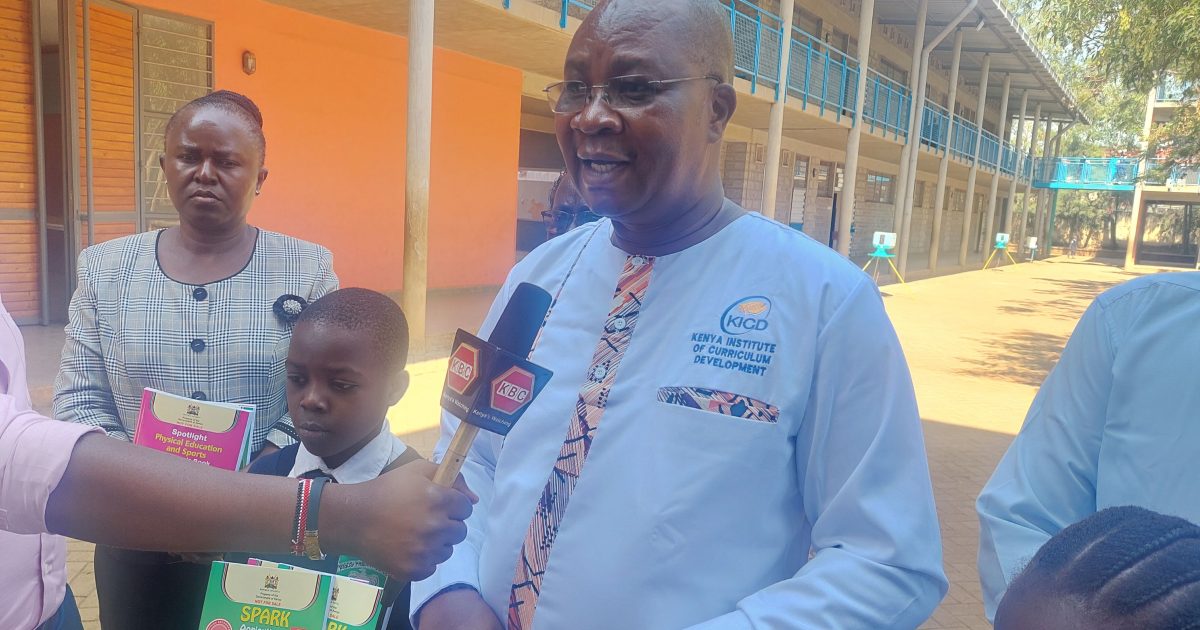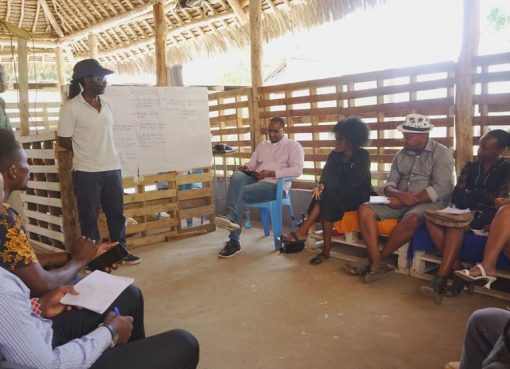The Government has put stringent measures in place, to ensure Grade Seven learning materials reach all schools across the country before the end of the week.
Kenya Institute of Curriculum Development (KICD) Chief Executive Officer (CEO), Prof. Charles Ong’ondo, said a consignment containing three sets of the books has already been delivered to schools.
Prof. Ong’ondo said the textbooks on health education, agriculture and physical education were currently being issued to students across the country, adding that KICD in collaboration with Ministry of Education officials, were tracking the remaining books, to ensure they are delivered on time.
Prof. Ongo’ondo said the Junior Secondary School rollout had kicked-off smoothly, adding that all the agencies involved were on the ground to address any emerging challenges.
KICD, he said, was monitoring the exercise, announcing that a review shall be conducted in February to assess any additional learning materials required to facilitate smooth transition.
He asked parents who have moved their children to different schools, to notify the respective education offices of the changes, to ensure that every school receives enough books.
Speaking at Migosi Primary School in Kisumu during an inspection of the exercise, Prof. Ong’ondo said capitation for Junior Secondary is expected to hit the accounts of the schools before the end of the week, to ensure a smooth transition.
He cautioned teachers against charging extra levies, asking them to negotiate with parents and agree on how to procure uniforms and other requirements.
Out of the Sh. 15,000 allocated per student, he said Sh. 4, 000 will go towards improving the infrastructure at the learning institutions, cautioning school heads against transferring the burden to parents.
“As we roll-out this program, the government will review the facilities and see whether the allocation needs to be scaled-up,” he said.
The Teachers Service Commission (TSC), he said, was in the process of deploying teachers to Junior Secondary, calling on the respective heads to assess the qualifications and skills of teachers in primary and allow those qualified to assist in the roll-out.
For technical subjects, Prof. Ong’ondo asked school heads to liaise with their Senior Secondary School counterparts, to allow students access laboratories and technical learning, as measures to stabilize the JSS continue.
Kisumu Central Sub-county Director of Education, Charles Angiela, said 29 public and 41 private schools in the area, were cleared to host Junior Secondary Schools.
He added that a total of 4, 888 students in the Sub-county were expected to transition to Junior Secondary, adding that so far 70 percent had reported.
An assessment carried out by his office, he said revealed that over 30 Primary School teachers in the area had acquired masters degrees, with a good number holding Bachelor’s degrees in Education.
This, he said, was a positive indicator, the rollout of Junior Secondary will be successful.
“We are going to take stock of teachers at all the schools next week, to identify where there are gaps, so that we deploy,” he said.
Migosi Primary School Head Teacher, Roseline Gwada, said out of the 350 students expected to join JSS, 319 had already reported.
“The others are joining us from other institutions and we expect to have them in school before the end of the week,” she said.
At Rabuor Primary School in Nyando Sub-county, 146 students out of the expected 200 have reported, as the school grapples with fixing dilapidated infrastructure.
Head Teacher, Dickson Awuor, said three classrooms have been set aside for JSS, adding that the school management will sit down with parents, to see how best to address the existing challenges including desks and chairs.
By Chris Mahandara



